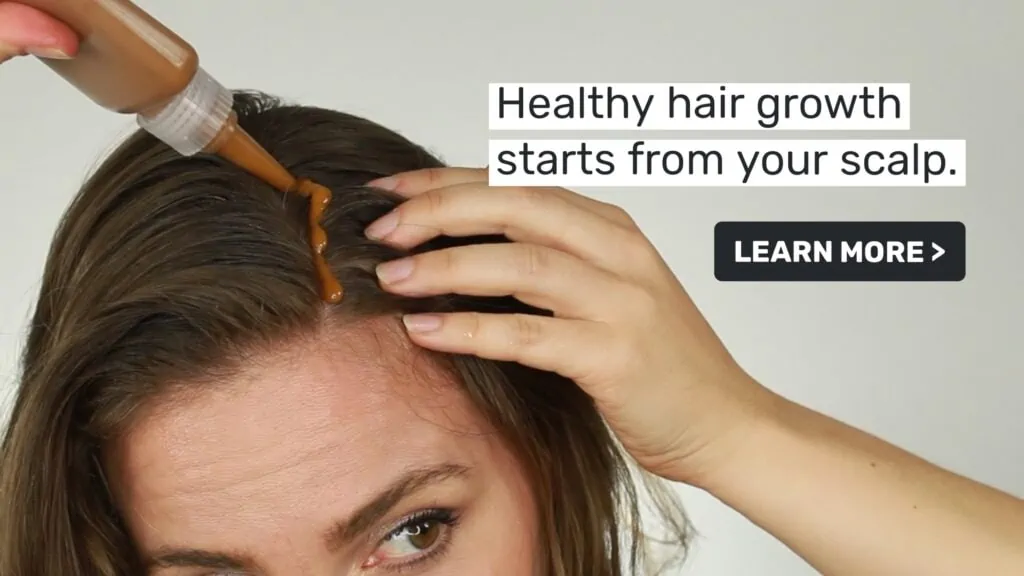When exiting an old job and entering a new company, it can be a mix bag of exciting and also daunting feelings. From having to understand new workplace social dynamics, learning new software and processes to figuring out where to get lunch and change your daily commute (or daily Zoom ID!), a barrage of challenges presents itself. A couple of months go by and just about when you begin settling in, you notice handfulls of hair in the shower and your hair brush.
Out of 43 most stressful life events as per Holmes & Rahe Stress Scale (1) – 10 of them are in some way connected with our working lives. When you were looking for a new job as well as when you were adjusting to your new workplace, your body was triggered to respond to these external changes as stress factors. In its protective function, it minimised non-essential processes, which includes scalp blood flow and nutritional support of hair follicles.
The last thing on your mind should be managing hair loss at your new job, so here we take an in-depth look of the factors at play that can either elevate or reduce your levels of stress as a result of a job change.
What is Cortisol?
It is impossible to look at stress levels without fully understanding the role and function of cortisol, a steroid hormone produced in the cortex of our adrenal glands. Those glands are located on top of our kidneys and help regulate metabolism, immune system, blood pressure, response to stress and other essential functions. Adrenal glands will receive signals from our pituaritary gland in our brains about a stressful situation, communicating that the body needs to deal with it in the most efficient way. (2)

In Paleolithic times, cortisol played a vital role in times of ‘fight-or-flight’ from an enemy or animal. The human body has evolved so that cortisol levels spike for a short period of time when in danger and then return to normal once the stressor disappears. This spike of cortisol was a good thing, giving the extra boost of energy to flee or put up a fight. However when changing jobs, those levels can remain elevated for prolonged periods of time, rather than simply being a spike. Without an actively managing cortisol levels, it can lead to negative effects like hair-loss, weight-gain and more insidious problems with mental health. (3)
Exercise and new job
“If exercise could be packaged in a pill, it would be the single most widely prescribed and beneficial medicine in the nation.”. Exercise is one of the most well-known managers in cortisol release. Research suggests that overly intense workouts (if you are not used to them) can increase cortisol levels, especially doing those workouts at the end of the day when the natural levels of cortisol are lower. This can lead to artificially elevated cortisol levels and prevent you from getting good night sleep. Thus, exercising in the first part of the day, when the levels of cortisol are naturally high – is advisable to help in cortisol management.

A crucial point is that exercise does not replace sleep. Waking up early in order to exercise, starving yourself off sleeping time, is a sure way to wear down your body when it comes to cortisol level management. It may take time to adjust to the new job requirements, whether it is a commute or your daily responsibilities, so you don’t need to make huge time commitments and wake up one hour early in order to fit your exercise. Starting your day became a lot easier with a plethora of free resources available to us.
If you are working from home – having breaks with a few pushups or squats can do wonders to your cortisol levels. Especially so, as you don’t need to explain these routines to your new co-workers.
Easy solve: look up 7 minute workouts on Youtube in the morning and do it in the morning before you jump in a shower.
The sleep practice
Changing jobs may call for longer working hours, not only to appear more hard-working (a questionable practice…), but learning about the new job and responsibilities and new shift schedule can call for longer working time requirements that can impede your sleeping patterns.

Skimping out on sleep is absolutely the last thing to do when transitioning into a new job. The body repairs itself during sleeping hours, cortisol levels naturally decrease, our sympathetic nervous systems calms down and parasympathetic system activity increases. It is important to allow sufficient sleep to help your body go through these restorative processes. Exploring tools like:
- guided sleep meditation
- anti-anxiety weighted blanket
- bluelight glasses
- sleep hygiene
- breathing exercises
– can significantly increase quality of sleep.
Easy solve: go into “airplane” mode on your phone one hour before going to bed
Bonus: take 10 hold breaths: inhale for 4 seconds, hold for 4, exhale for 8 – repeat 10 times just before your head hits the pillow
Eating and nutrition at new workplace
New job may mean changes to your diet, not only more lunch breaks are at the desk as you learn about the new job, but aspects like changed canteens or nearby cafes can put the body through stress. Packed lunch may be a good idea until you explore more options around your office and surrounding neighbourhood. Having those prepared meals would also allow you be a little more in control over your diet and reduce emotional eating. Minimising changes for your body – that means eating familiar food, can help the adaptation to the new environment at work. As time goes by and you had more chance to familiarise yourself with the office neighbourhood, you can begin flexing your lunch choices as well. Meanwhile, ensure to understand the basics of your nutrition habits to enable hair growth that help you manage hair loss.
Easy solve: packed lunch.
Space for self-reflection for the new job

Changing jobs mean new experiences, new emotions, new thoughts: this is a lot for the brain to process. As the brain is responsible for triggering sympathetic nervous system, which in turn signals our adrenal glands to produce more cortisol – creating space for the brain to unwind becomes crucially important. Practices like journalling forces our thoughts to slow down as we drag the pen across the pages of our journal. Meditation – simple five to ten minutes focus on your breathing can do wonders to calming sympathetic nervous system. Slower breathing switches on our calming, parasympathetic nervous system that helps the body relax.
Easy solve: get a therapist or a journal for a low-cost option
A note on hair loss
We haven’t yet addressed the elephant in the room. Hair loss. Our bodies need to be in balance – so approaching this problem holistically is imperative. Once you adopt some of these recommendations, you hair will respond in kind by follicles getting back into the anagen (growth) stage again. To furter support your hair follicles and help you relax before going to bed, brushing your hair with either a boar-bristle brush or a wooden one 100 times helps you elevate blood flow to scalp. Such ritual also signals your brain that you are going to bed soon and it begins to unwind.

Other tools for hair loss worth considering:
- Taking supplements – read about 5 vitamins for hair growth
- Weekly hair mask that supports your follicles
- Dermarolling or microneedling – read more on how it improves your hair growth
- Exploring protective hairstyles to extend time between washes
Have you discovered other mechanisms to help you cope with job change hair loss? Share with our community below!
Who we are:
The Hair Fuel is an all-natural hair growth mask created by Laura Sagen, who lost a third of her hair after a terrible visit to a hairdresser while suffering from a life-long condition of PCOS associated with androgenic hair thinning. She developed the formulation rooted in the science of scalp blood flow, which has become The Hair Fuel growth mask. Since then, her company has helped thousands of people like you to start growing healthy hair.
We work closely with our lab and manufacturers to ensure the highest quality product. But a product alone is never enough – so we hold your hand throughout your own, unique hair growth journey. Our flagship product, The Hair Fuel mask coupled with tailored advice, digital tools, and online support is there to help you grow the best hair you can. It’s a big claim – but we’re unafraid to make it. Check out our starter bundles >>
